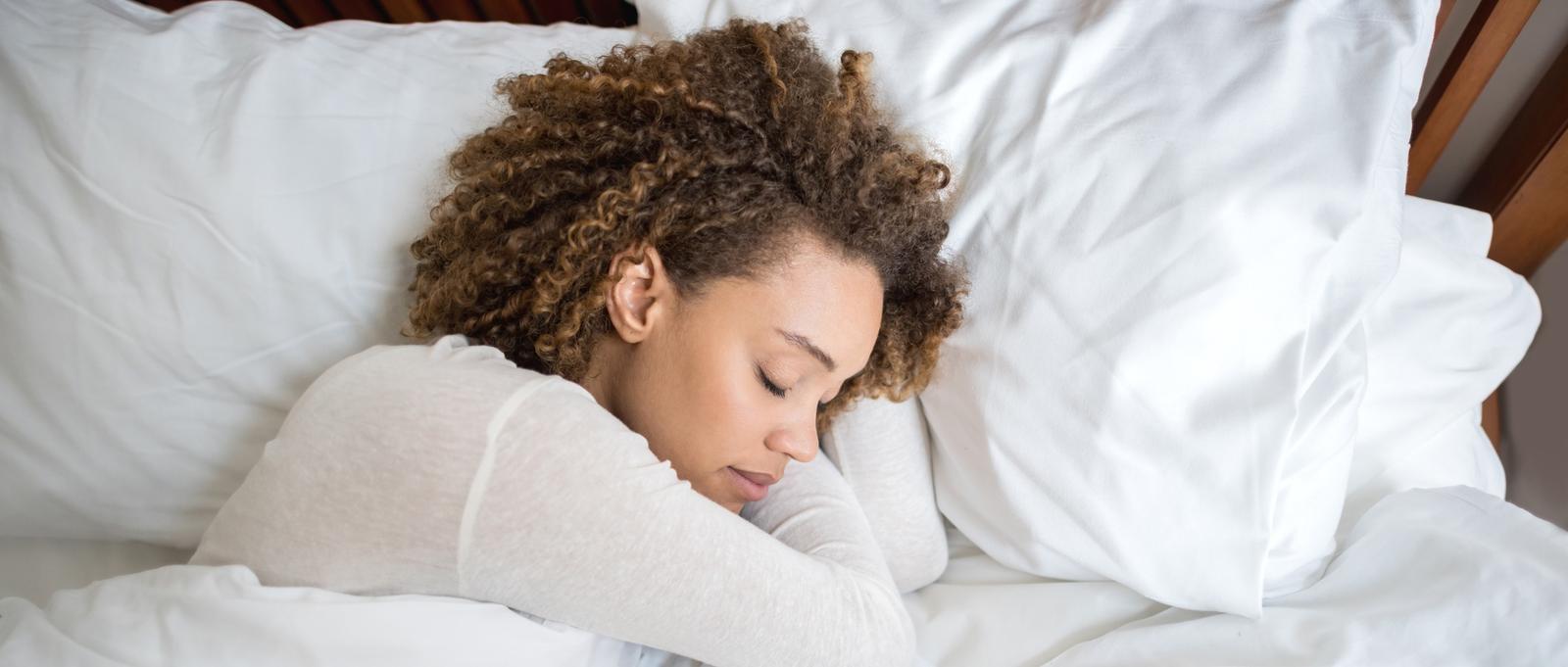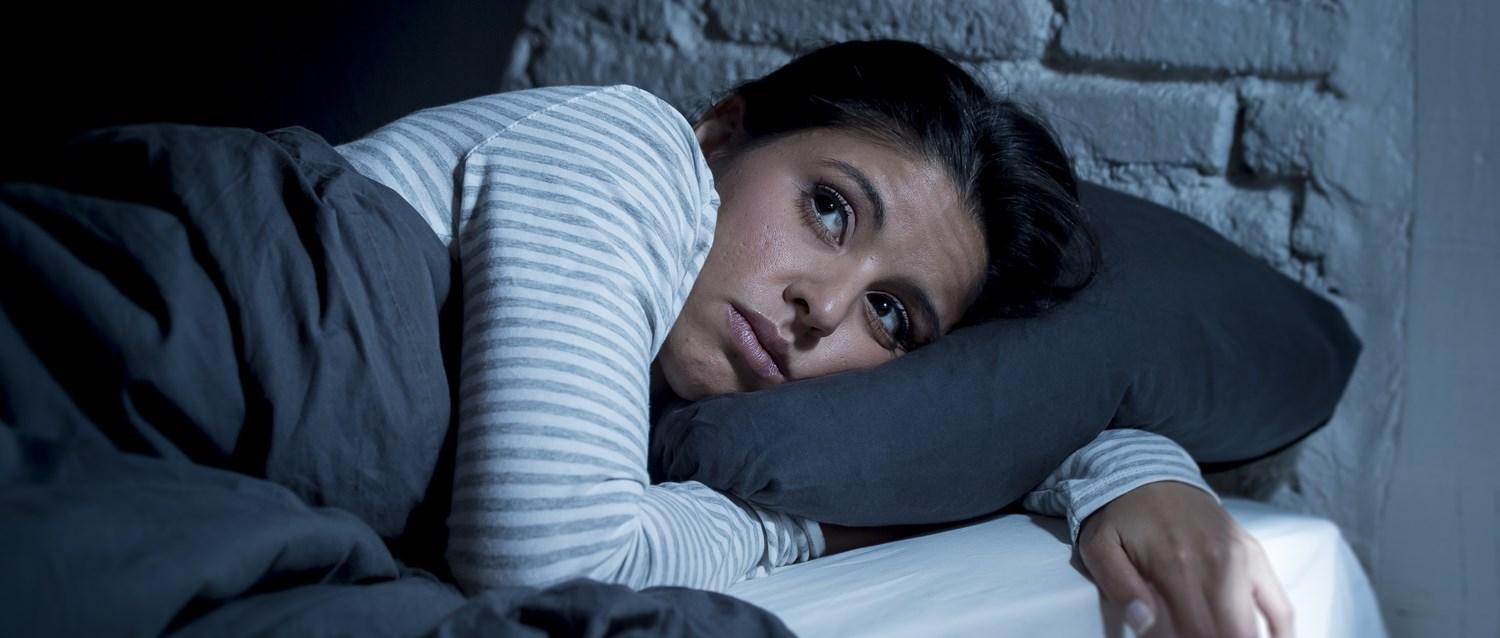
What's the right temperature for sleep?
Peer reviewed by Dr Sarah Jarvis MBE, FRCGPLast updated by Dr Jan Sambrook, MRCGPLast updated 7 Nov 2017
- DescargarDescargar
- Compartir
We all like to snuggle down under a warm duvet on a cold night, but did you know that having your bedroom too warm might be stopping you from getting to sleep?
En este artículo:
As part of our normal circadian (daily) rhythm, our bodies cool in the middle part of the evening and cool further while we sleep. If you find it hard to get off to sleep it may be because your body's internal thermostat is set too high, or because your circadian rhythm is running late. There is some evidence that deliberately cooling your body down, for instance by having a lukewarm bath or shower before bed, may correct the problem and help you get to sleep.
Putting a warm hot water bottle by your feet, or even wearing some cosy bed socks may also help. When you have something warm next to your skin, the blood vessels near the skin dilate (get wider) so you lose heat through your skin, and that can actually help to cool the body as a whole.
As we get older, the size of the variations in body temperature through the day gets smaller, and this is probably one of the reasons that a lot of older people find it harder to get off to sleep.
Seguir leyendo
What temperature should my bedroom be?
Studies have shown that room temperature in the bedroom should be between 15.5 and 20° Celsius (60-68° Fahrenheit). In the UK, the majority of us have to heat our houses most of the year to maintain comfortable temperatures, and warmer temperatures than these may be comfortable during the day.
If you have a separate thermostat in the bedroom, you can set it to be lower than the rest of the house, or you can turn the heating off a couple of hours before you go to bed so that the gradual cooling of the house can work with your body's natural cooling.
In warmer countries, a comfortable temperature is maintained by fans or air conditioning. It may be harder to keep the bedroom at a cool temperature, but opening a window may help as the air outside cools. You can also buy pillows which have cooling pads in them to help keep you cooler in bed.
Selección de pacientes para Insomnio

Salud mental
Understanding the cause of your sleep problems
Most of us know the feeling - it's 4 am and you're still tossing and turning, or you've woken up and are now super-alert. It's never fun, but you are in good company. At any one time, about 1 in 5 people are having some problem sleeping - but the good news is that for the vast majority of people, insomnia is temporary.
por la Dra. Sarah Jarvis MBE, FRCGP

Salud mental
Apnea del sueño
Si padece apnea del sueño (también conocida como síndrome de apnea obstructiva del sueño), tiene muchos períodos en los que su respiración se detiene durante 10 segundos o más mientras duerme. Después de cada episodio de interrupción de la respiración, se despierta brevemente para volver a respirar. No suele recordar las veces que se despierta brevemente, pero tiene un sueño nocturno alterado. Como resultado, se siente somnoliento durante el día. Una persona típica con esta afección tiene sobrepeso, es varón y de mediana edad, y ronca fuerte. Sin embargo, puede afectar a cualquier persona. El tratamiento de la apnea del sueño suele dar buenos resultados.
por el Dr. Colin Tidy, MRCGP
What is a tog rating?
When you buy a duvet you will see a tog rating on the packaging. The tog rating of your duvet is a measure of how well it insulates and thus how warm it feels.
A lightweight summer duvet is generally between 3 and 4.5 togs, a medium-weight spring or autumn duvet is 7.5 to 10.5 togs, and a warmer winter duvet is generally 12 to 13.5 togs.
The duvet that you need will depend on various other factors, such as whether your house is warmer or colder than average. If you are finding it hard to get to sleep and you are very warm under your duvet it may be worth changing to a duvet with lower togs.
Seguir leyendo
What to wear to sleep in?
The two factors that influence what pyjamas will help you sleep better are how insulating the fabric is and how sweaty it will leave you feeling. Natural fabrics such as cotton are more breathable than synthetic materials such as nylon, and pyjamas made from bamboo fibre should wick moisture away from your body to stop you from feeling sweaty in bed. Wearing nothing at all can be a good option for temperature control.
What happens if your partner's needs are different from yours?
Sleep is a very personal thing, and very often what works well for one person doesn't suit their sleeping partner. One person may like to sleep with the windows open and the other may be disturbed by the noise or the draught. One person may like a warmer room but the other may need it cooler to get to sleep.
There are compromises to be made in all relationships and you need to work out what is going to result in the best quality sleep. Some people find that sleeping under separate duvets helps them to regulate their own temperature better (and it also stops your partner from pulling the duvet off you in the night).
Seguir leyendo
What conditions affect sleeping temperatures?
A lot of women find that as they approach the menopause, usually around age 50, their sleep becomes disturbed by hot flushes and sweats. Hot flushes are usually more troublesome at night and the resulting sleep disturbance has a significant impact on quality of life.
Hot flushes usually get better with time, but if you are very troubled by them then it may be worth talking to your doctor about hormone replacement therapy (HRT). This will help to control all the symptoms of the menopause and most women who take HRT find it particularly helpful to treat hot flushes.
Night sweats are sometimes a side-effect of medication, and they can also be a sign of underlying disease, so if you are troubled by sweating in the night, you should make an appointment to see your doctor.
Historia del artículo
La información de esta página ha sido revisada por médicos cualificados.
7 Nov 2017 | Última versión

Pregunte, comparta, conecte.
Explore debates, formule preguntas y comparta experiencias sobre cientos de temas de salud.

¿Se encuentra mal?
Evalúe sus síntomas en línea de forma gratuita